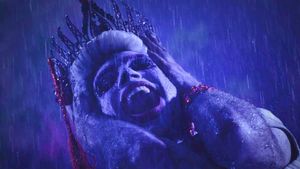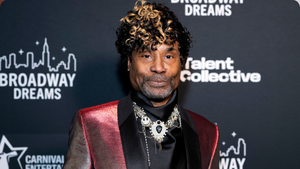Fifty-three years after Martin Luther King Jr. delivered his iconic "I Have a Dream" speech at the March on Washington for Jobs and Freedom in 1963, and 153 years after Abraham Lincoln signed the Emancipation Proclamation, the fight for that dream continues.
Sure, black and white children may play together, and "For Whites Only" signs are no longer posted in public places. But, the legacy of those "For Whites Only" signs continue to haunt boardrooms, executive offices, neighborhoods and schools across the nation.
In a preliminary report to media earlier this year, The United Nations Working Group of Experts on People of African Descent made it clear how much more work we have ahead of us before we make Martin Luther King Jr.'s "dream" a reality. The scathing report issued earlier this year outlines many ways that the United States of America has created and perpetuated disparities and injustices for people of color. But we didn't need a report from the UN to tell us that.
We know that because of racist policies that people of color and other marginalized groups are disproportionally affected by poverty, poor health outcomes, housing instability, poor educational resources and a host of other problems that many erroneously believe are caused by laziness, lack of motivation or an unwillingness to succeed.
We also know that right now, a strong, vibrant and intersectional coalition of young leaders are working to hold the United States accountable to its promises and this dream. And those leaders are being criticized, battered, jailed and surveilled for their activism just like Martin Luther King Jr. and the men and women who protested along with him during that era.
We're at a time where more people are realizing both the potential, and the failure, of the systems we've trusted to protect us -- and people are taking action. We are living in the moment of a "rude awakening" that Dr. Martin Luther King Jr. promised in his iconic "I Have a Dream" speech.
Because of our ancestors' fervent pursuit of the dream, people, like this reporter, can fight these battles in media spaces; others in corporate spaces; some in academic spaces. As Maya Angelou so powerfully orated, "I am the hope and the dream of the slave." And we continue to rise.
But while black and brown people are still victimized by state systems ostensibly created for civil protection, and while LGBT people are still subject to being fired for their sexuality or gender identity, we must continue to fight.
The intersectionality of race, sexuality and gender identity places burdens and barriers so extensive that nearly every week we mourn a life lost too soon. It seems every time we log on to social media, we add another hashtag to the growing list. Still, we know that we have no option but to continue pursuing justice.
Our friends and loved ones are being taken from us, living memories reduced to photo collages on social media. And no matter the color, creed, orientation, gender religion or profession -- they were all lives, and to someone they mattered, but we know all lives don't matter to everyone. Because somehow, some way, some people lost sight of the dream. Or never believed in it in the first place.
We can be inspired, though, if not called to action, because the dream has not been lost. It lives on through our freedom fighters today. It lives on in the Movement for Black Lives platform. It lives on in women of color who are trailblazing to make the dream reality by any means necessary. It lives on in the work of people who resist, challenge and demand. It lives on in the students in the classroom calling out oppressive educational structures, and it lives on in the NFL football player who sits down to make a stand.
Anyone who stands up, and stands out, lives that dream. Those courageous acts work to protect it, and hold our nation accountable to it. Dr. King recognized that, and seemed to also recognize that if the dream did not come to fruition, unrest would come again.




































































Charlie Kirk DID say stoning gay people was the 'perfect law' — and these other heinous quotes